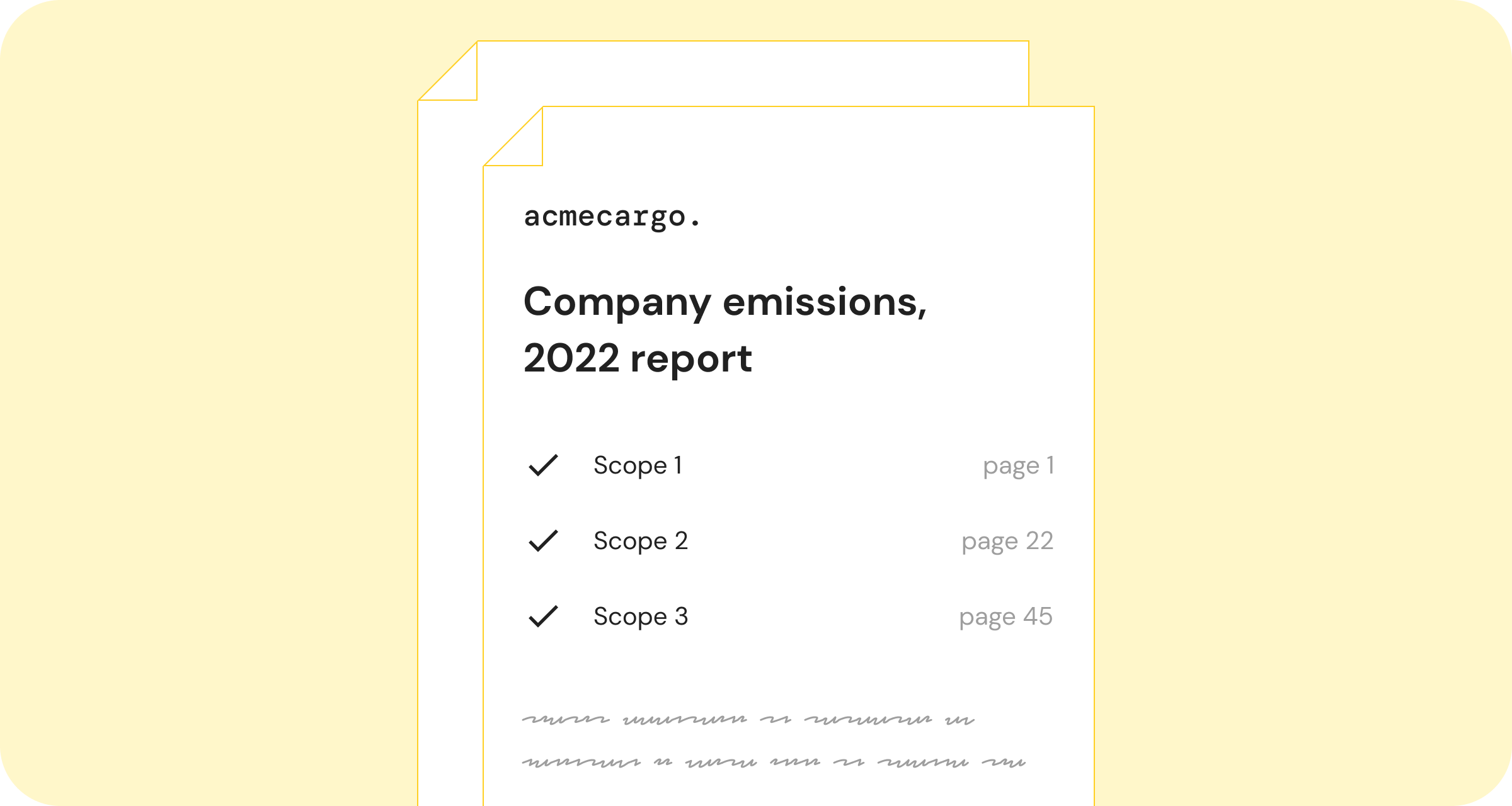

Over 60% of consumers are quite or very interested in sustainable delivery methods, with 59% stating they would take action if they weren’t satisfied with retailers' sustainability efforts.
This presents a challenge for logistics platforms; to help their customers keep up with this consumer need. However, it also presents an opportunity to differentiate their offering to keep up with this rising demand.
Sustainability is quickly emerging as a decisive differentiator in logistics. By allowing your customers to calculate, report on, and offset carbon emissions, you can build a trusted, future-proof logistics platform in the eyes of your customers and stakeholders.
Why emissions tracking and sustainability matters in logistics
Regulatory pressure and transparency
The EU Corporate Sustainability Reporting Directive (CSRD) compels thousands of companies to disclose their emissions. The CSRD highlights the growing need for transparency. For logistics providers, understanding and communicating these results, even regarding indirect (Scope 3) emissions, is crucial for building credibility. Especially as DHL states 80-90% of a product's emissions are from the supply chain alone.
Meeting buyer expectations
The value-add of sustainability in business extends across B2B and B2C, as consumers vote with their wallets. According to PWC, consumers are willing to pay a 9.7% premium for sustainably produced or sourced goods. Then, up to 36% of B2B buyers are willing to switch suppliers if they don’t meet their sustainability requirements, reflecting the mounting consumer demand for sustainable practices.
Sustainability, therefore, has emerged as a clear commercial advantage.
As a result of the increasing desire for sustainable products, retailers will require logistics platforms to be able to verify their emissions performance and offset their customers’ carbon emissions.
One of the other motivations behind the need to have accurate visibility over emissions is to avoid accusations of greenwashing when making sustainability claims. The reputational damage of greenwashing cannot be overstated.
In 2019, it was estimated that over $500 billion has been wiped off market capitalisations of large US companies because of ‘ESG controversies’ in the previous five years. Sustainable logistics isn’t just about meeting the needs of consumers and retailers, it’s about future-proofing your brand.
Competitive advantage
By becoming an early adopter of sustainability best practices, logistics companies can earn new customers, boost brand loyalty, and attract more investment. Innovative logistics platforms that incorporate clear emission calculations, transparency, and carbon offset initiatives stand out.
This is shown by a McKinsey survey highlighting that 85% of chief investment officers identified ESG as an important factor in their investments. If you can demonstrate sustainability is at the core of your offering, you can showcase that your platform is future-proof and innovative to investors, customers, and stakeholders.
However, for many, bridging the gap between good intentions and tangible actions remains a challenge.
The Lune solution: emissions intelligence
We help logistics companies embed climate action seamlessly into their offering to accelerate positive impact and grow revenue fast. Here’s how:
- Embedded emission calculations: Easily integrate robust emissions tracking into your logistics processes, making complex Scope 3 calculations straightforward and transparent for customers and regulators alike.
- Quality carbon projects: Offset logistics emissions and drive real-world climate action by allowing customers to invest in vetted, high-impact projects, helping you to build a climate-positive legacy, and your customers to proactively reduce carbon emissions.
- Enhanced regulatory compliance: With our out of the box analytics and audit-ready emissions intelligence, you can offer streamlined reporting processes and exceed evolving sustainability standards, reinforcing your competitive advantage.
To find out more about how greening the supply chain enhances your customers’ compliance, reputation, and satisfaction and ultimately boosts your platform growth, download our asset on the opportunities that hide within logistics supply chains.
Readers also liked
Readers also liked

Subscribe for emissions intelligence insights
Get the latest updates in the world of carbon tracking, accounting, reporting, and offsetting direct to your inbox.


